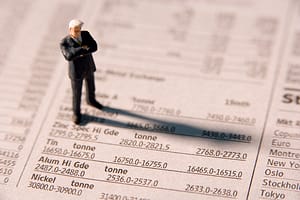As a US citizen living abroad, it is a basic need to seek or build shelter in your host country, especially if you plan to live there for a prolonged period. With the hefty cost of putting a roof under your head, you might find yourself seeking financial help.
The Foreign Housing Exclusion (FHE) aims to reduce the financial burden of people who are in your situation. Under the Foreign Earned Income Exclusion (FEIE), the FHE is specifically designed to ease the cost of maintaining housing in a foreign country.
What is the foreign housing exclusion?
The FHE is a tax relief made by the US government to support their fellow US citizens abroad. This is focused on housing and expenses related to where they currently live as it can be one of the heavier burdens expats face.
The way that FHE works is it allows you to deduct housing expenses from your taxable income in the US as long as they meet a certain criteria under the Foreign Earned Income Exclusion.
How does the FEIE and FHE connect?
The Foreign Housing Exclusion is actually a supplement to the FEIE, designed specifically to address the high cost of housing in foreign countries. So they both help you financially but in different ways.
So, in order for you to claim the FHE, you must first qualify for the FEIE. You can do this by passing either the Bona Fide Residence Test or the Physical Presence Test, which determines your eligibility for the FEIE.
Housing expenses for the FHE:
Here are the housing expenses that can be excluded:
- Rent
- Utilities (except for telephone charges)
- Property insurance
- Leasing fees
- Repairs
- Furniture rental
- Residential parking fees
- These expenses must be reasonable and directly related to living in a foreign country.
FHE qualifications
Generally, you need to be qualified for the FEIE in order to qualify for FHE. Here’s what you can expect:
Bona fide residence test
You must have been a resident of a foreign country for an uninterrupted period that includes a full tax year.
You must be physically present in a foreign country for at least 330 full days during any 12-month period.
In addition to that, there is also a limit on your income to consider since it’s tied to the FEIE. The total amount you can get for the FHE will be your total housing expenses for the year less the base amount that you get from the FEIE
FHE amount limit
The amount you can claim will vary depending on your location, but it should not be more than your total income for the year.
The FHE amount will cover housing expenses exceeding a base housing amount. The base housing amount is 16% of your FEIE limit. It is also prorated for the number of qualifying days during the tax year.
Let’s say you’ve computed your housing expenses, and it turns out it’s actually less than the base housing rate. This means that you won’t have to pay any taxes on your housing expenses! Talk about financial freedom.
Exceeding the FHE limit
After finding out the FHE limit for your location and realising you’ve exceeded the limit, the excess amount cannot be excluded from your taxable income and will be subject to US tax.
In this instance, it’s better to explore and utilize other deductions or credits that can be available to you. Hiring a professional tax accountant like Expat US Tax to help you navigate these bumps along the road can be beneficial for you.
Claiming FHE
Once you’ve determined your eligibility, here is a general sense of how to claim the exclusion:
- Gather documents: Necessary documents include lease agreements, rent receipts, utility bills, and proof of foreign residency.
- Calculate your FHE: Add all your qualified expenses and subtract the base housing amount, ensuring that it won’t exceed the limit.
- Complete IRS Form 2555: Include your eligibility, foreign-earned income, and housing exclusion amount.
- Attach Form 1040: Attach Form 2555 to your Form 1040 and ensure the FHE amount is reflected in your total adjusted gross income (AGI).
- File Your Tax Return: The standard deadline is April 15 with an extension until June 15 for expats.
Foreign housing exclusion and foreign housing deduction
The Foreign Housing Exclusion (FHE) allows you to exclude eligible housing expenses from your taxable income. As a result, it reduces your gross income for federal income tax purposes.
On the other hand, the Foreign Housing Deduction (FHD) allows you to deduct eligible housing expenses from your gross income. Unlike the exclusion, this deduction reduces taxable income directly but does not lower self-employment tax liability.
An important difference between the two is that FHE is for employees with employer-provided funds, while FHD is for self-employed individuals only.
Claiming both FHE and FHD
You can claim both the Foreign Housing Exclusion and the Foreign Housing Deduction depending on whether you qualify for both.
Additionally, you cannot claim them simultaneously for the same expenses. You must allocate expenses clearly between the exclusion and deduction.
Reporting FHE
You can use Form 2555 to calculate and report your income and housing expenses for the Foreign Housing Exclusion.
You can use Form 1040 to put all your income, deductions, and credits.
Be sure to keep track and record your housing bills and receipts as proof of these expenses, and update your employment status abroad for smooth reporting.
FHE for married couples
If you’re married and are wondering if splitting the FHE between you can be beneficial, the answer depends on your circumstances, such as income levels, housing expenses, and your filing status.
But first, each of you needs to qualify for the FHE as an individual so you can be eligible to split the exclusion. Your income status should also be “Filing Separately” so you can split the housing expenses.
Splitting the FHE can be beneficial for you as it can potentially exclude your housing expenses up to the maximum limit, increase the total excluded amount, and double the potential tax savings.
The above information does not constitute any form of advice or recommendation by London Loves Business and is not intended to be relied upon by users in making (or refraining from making) any finance decisions. Appropriate independent advice should be obtained before making any such decision. London Loves Business bears no responsibility for any gains or losses.






Leave a Comment